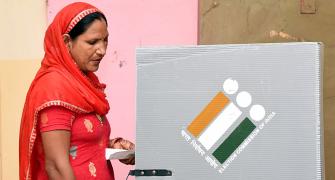Today, NBA player Yao Ming has become a star popular among the people of both countries. From the ping-pong ball to the basketball, it is not just a change in diameter. Rather, it reflects the enormous progress in depth and breadth of China-US relations over the short span of 30 years.
Again, more than 30 years ago, before Dr Henry Kissinger's secret visit to China, it seemed to many people that our mutual estrangement would continue forever.
It is said that when a British journalist filed the news of Dr Kissinger's secret mission to China to his editor in London, the editor convinced himself that the journalist must be drunk. How could Kissinger go to China? He threw this news story into the wastepaper basket without a second thought. Dr Kissinger's visit was followed by that of then president Richard M Nixon.
Later on, Chinese leader Deng Xiaoping came to the United States. On January 1, 1979, our two countries established formal diplomatic relations and ushered in a new era of exchange and cooperation.
In the short span of 30 years, with the joint efforts of several generations of Chinese leaders, seven US presidents and people in both countries, the ship of China-US relations has forged ahead, come rain or shine. It has brought tremendous benefits to our two peoples and contributed greatly to world peace and development.
Both the 1.3 billion Chinese and the 300 million Americans feel happy to see that our exchanges at the top and other levels are becoming more and more frequent. Years ago, our top leaders could hardly meet once in several years. Yet, during President Gorge W Bush's presidency, our top leaders have met several times a year.
There are now more than 60 dialogue and cooperation mechanisms between our two countries, in particular the Strategic Economic Dialogue and the Strategic Dialogue. These two mechanisms have provided an important platform for expanding and deepening dialogue and cooperation between us at the strategic level.
Our two countries have common views on more and more strategic issues. Exchanges and mutual understanding between our two countries in the past 30 years have reached breadth and depth never seen before. Our understanding of the changing world, of each other and of our relationship has deepened substantially.
Our strategic mutual trust has grown and we have become wiser and more rational in handling various issues. China and the United States shoulder important responsibilities for world peace and stability. We should live in amity, not enmity. We should engage in cooperation, not confrontation. This has increasingly become the shared view of people from various walks of life in both countries.
The common interests linking our two countries have grown. China-US relationship today has gained stronger domestic support and assumed greater global significance. It has become an invaluable asset of both peoples. We have worked together bilaterally and on multilateral occasions, from political and security issues to economic and financial issues, from regional hotspots to transnational challenges.
One can hardly find any issue on which we do not cooperate. The two-way trade volume has surged from $2.4 billion in the early days of diplomatic relations to more than $300 billion today, an increase of over 120 times.
The two sides have conducted fruitful exchanges and coordination on regional hotspot issues and global issues such as counter-terrorism, non-proliferation and addressing the ongoing financial crisis and climate change. Such cooperation serves as a new underpinning of our bilateral relations.
The friendly ties between people of our two countries have become more solid. More than 5,000 people travel across the Pacific Ocean every day. When President Nixon visited China, it was even difficult for us to find a US song.
Today, there are many Chinese fans of different styles of US music. Hollywood movies like Mulan and Kung Fu Panda are quite popular in China. The American people also love Chinese culture. It is said that there are thousands of schools in the United States teaching young Americans the language of Confucius. Our two countries also assisted each other in times of natural disasters.
Over the past 30 years, China and the United States have become more interdependent. Niall Ferguson, a famous economic historian, coined a new word, Chimerica, to describe the close ties between our two countries.
I would like to highlight that it was a Republican administration that opened the door to China and it was a Democratic administration that entered into diplomatic ties with China. During the Clinton administration, our two countries reached agreement on China's accession to the WTO. During the Bush administration, we have become not only stakeholders but also constructive partners.
The tremendous progress in our relations is beyond the wildest imagination 30 years ago. History is the best teacher. The 30-year history of China-US relations offers us many valuable lessons. I believe it is important that we correctly understand each other's strategic role. What has happened in the past 30 years proves that China and the United States are partners rather than rivals, still less enemies. China-US relationship is not a zero-sum game but a win-win relationship.
We must view and handle China-US relations from a strategic height and a long-term perspective. We must firmly uphold and advance our common interests and expand cooperation.
We must continue to perceive each other's development and judge each other's strategic intention in a level-headed and objective way and increase strategic mutual trust. We must respect and accommodate each other's core interests and major concerns, and fully appreciate and respect each other's choice of political system and development model.
We must adhere to the principle of non-interference in each other's internal affairs. In particular, we must handle properly the Taiwan question, the most important and sensitive issue in our bilateral relations. We must continue to improve institutional support for candid, in-depth and timely communication and cooperation and foster a sound media environment and build stronger public support for our relations.
I come from a poor mountainous village in Guizhou province. I plowed farmland and herded cattle on the hills. In my childhood, I dreamed of leaving the mountains one day. It is the founding of the New China, its development and, in particular, its reform and opening up that have given me the opportunity to see the outside world.
As every American has an American dream, so does every Chinese. It is reform and opening up that have given hundreds of millions of Chinese people more opportunities to fulfill their dreams.
The Chinese people embarked on the historic journey of reform and opening up and the modernisation drive about the same time our two countries established diplomatic relations. With 30 years of painstaking efforts, we have scored great achievements that have been recognised worldwide.
Since China successfully hosted the Beijing Olympic Games this year, the world has paid more attention to us and shown a keener interest in China's long-term strategic intention and the direction of China's development. The so-called strategic intention of China is in fact not as complex or unfathomable as some people may think. They suspect that we have deeply hidden ambitions.
I can tell you in a responsible way that we Chinese have no secret schemes, only open plans, no wild ambitions, only goodwill. Our goal, to put it in one word, is development. That is to say, after ensuring adequate food and clothing for the 1.3 billion Chinese people, we will enable them to live a moderately prosperous life so that the Chinese nation which has gone through so many trials and tribulations will stand rock firm in the family of nations. This is our dream.
Hosting the Olympic Games has not "pushed China to the heaven at a single stroke", so to speak. China remains a developing country in every sense of the term. A few days ago, I received a photo of my junior high school classmates, and half of my 52 classmates have already passed away. Why so? Because ours is still a developing country. Of my five brothers and sisters, the three in the countryside have all passed away. Why?
Because ours is still a developing country. China is large in population but still weak in economy. For a country like ours, no matter how great our financial and material strength may be, when divided by 1.3 billion, it will result in a very small per capita figure. The number of people with a disability in China stands at 84 million, 20 million more than the total population of France. Each year, we need to provide employment to 24 million people. There are over 10 million people living in abject poverty. In addition, this year more than 10 million people were directly affected by the massive earthquake in Sichuan.
Just imagine, what a complicated, gigantic and daunting challenge it must be to meet even the basic needs of the over 100 million disadvantaged people and enable them to live a decent life. For these reasons, there is still a long way to go before China can truly become prosperous and strong. So far, we have only completed the first few steps in this long march.
China's development has brought opportunities for prosperity, development and cooperation to all countries, including the United States, and China is an important stabilising force for gradual and orderly changes in the international system.
By proceeding from our own conditions while keeping pace with the changing times over the past 30 years, we have found a development path that not only fits China but also benefits people of the whole world. Our 5,000-year civilisation has given us the will and wisdom to pursue harmony, amity and peaceful development.
China is a country that has goodwill toward the world, acts in a responsible manner, respects others but never allows itself to be bullied. China has been promoting socialist democracy in light of its national conditions and values, respects and protects human rights. Despite numerous challenges ahead, China will remain open to new ideas and committed to reform and opening up.
We are eager to learn from others and seek to live in equality and harmony with other countries with a view to achieving mutual benefit and common development. We pursue peaceful development and treat others with an open heart. Countries across the world can develop relations with us with ease and confidence. Of course, we are not perfect. We welcome all well-intentioned criticisms and suggestions. We are confident in reaching our goal despite all difficulties.
We have come to realise through our experience over the past 30 years that time has changed and all countries can achieve win-win progress through international cooperation. Gone are the days when one could use wars to transform the international system and order. The Cold War mentality and zero-sum logic should be regarded as irrelevant and outdated. It is not right to believe that "if you live, I will die; if you win, I will lose; if you rise, I will fall and if you are safe, I am in danger".
You may then ask how China should translate its dream of development into reality. Let me say that we will achieve development through continuous reform and improvement of our institutions, through hard work, creativity and initiative of the Chinese people, and through scientific development. In the meantime, we will work to build durable friendship and carry out equal and mutually-beneficial cooperation with the United States and the rest of the world.
Through these measures, we will enable the Chinese people, who make up over one-fifth of the world's population, to eradicate poverty and lead a comfortable life. The Chinese people will then live and work in contentment and harmony and China will enjoy balanced progress in the political, economic and social fields and harmony between man and nature.
By highlighting our focus on development, I do not mean to say that China will shy away from its international obligations and responsibilities. In fact, making a prosperous life possible for the 1.3 billion Chinese people is in itself China's biggest contribution to humanity. In the meantime, China is taking up more and more international responsibilities and obligations commensurate with its strength and status.
In a world of growing interdependence, China's future and destiny are increasingly tied to those of the world. We should all live in harmony, share benefits and responsibilities and work for win-win progress. This is in the best interest of everyone. Being selfish and showing no regard for others will feed resentment and harm oneself as well as others.
The world today is undergoing major transformation and adjustment. As globalisation and the application of information technology gain momentum and science and technology advance by leaps and bounds, the world is getting smaller and smaller and becoming a "global village". However, our common interests are getting bigger and bigger and the need for mutually-beneficial cooperation is getting stronger and stronger.
No country can tackle all the challenges and problems alone. The interdependence and the interconnection of interests among countries are unprecedented, gradually forming what some have called "a community of destiny" in which nobody can live without others. This has been borne out once again by the once-in-a-century financial crisis that we are going through.
To sum up, the profound changes in the world call for a more open mind and major reform in various areas. It's no longer workable to think about or handle the problems of the 21st century with the Cold War mentality of the 20th century.
Harmony, coordination and cooperation, mutual benefit and common progress should and must be the common choice of all countries. A foreign diplomat once said that today, as a result of globalisation, we no longer travel in different ships. Rather we are all traveling in the same ship, which we call the "Earth Spaceship", and our destiny hinges upon the inherent power of the ship. I believe that, as we are in the same ship, we rise and fall together. It does not make any sense not to pull together. Nor does it make any sense to stick to those concepts, policies and practices that can only lead to conflict, confrontation and even war.
China is the largest developing country and the United States is the largest developed country. It is all the more important for us to see each other as partners rather than rivals. It is all the more important for us to strengthen dialogue, coordination and cooperation. And it is all the more important for us to work sincerely together with all other countries and people to overcome the difficulties and challenges we face and create a better future for humanity.
China-US relations are now at a new historical point. We have every reason and responsibility to jointly promote greater and better growth of the relationship in the next 30 years and beyond. This way, we will bring more and bigger benefits to the people of our two countries and the entire humanity.
To realise greater growth of China-US relations, it is essential for China and the United States to show mutual respect, treat each other as equals and keep to the direction of building constructive and cooperative China-US relationship. We look forward to working with the incoming US administration to keep to this direction of our relations and constantly move them forward. This is in the interest of not only the Chinese and American people, but also people across the world.
To realise greater growth of China-US relations, the immediate task is to achieve a smooth transition in the relationship and save it from fluctuating with the change of administration in the United States as has happened in the past. We must ensure that it gets off to a good and smooth start and continues to forge ahead from the new starting point.
To realise greater growth of China-US relations, the most urgent item on the agenda is to strengthen macroeconomic and financial policy coordination, work together to address the international financial crisis and oppose all forms of trade protectionism or any attempt to politicise economic and trade issues.
To realise greater growth of China-US relations, the key link is to handle well issues involving each other's core interests and maintain and develop the strategic underpinning of our cooperation. Taiwan and Tibet-related issues concern China's core interests. The Chinese people have an unshakable determination to defend our core interests.
To realise greater growth of China-US relations, the fundamental approach is to enhance strategic dialogue and communication, expand strategic consensus, build strategic mutual trust, promote strategic cooperation and identify new areas of China-US cooperation.
To realise greater growth of China-US relations, the most important foundation lies in enhanced mutual understanding between our two countries and peoples and stronger goodwill and friendship toward each other. We should encourage more and more people to devote themselves to China-US friendship so that our friendly ties will be carried forward from generation to generation and enjoy solid public support.
Reviewing the past and looking ahead to the future, we feel indebted to the courageous and hard-working ice-breakers who opened China-US relations. More importantly, we need wise and brave sailors who can take our relations forward.
Let us join hands to ride the wind and waves, raise the sail of friendship and cooperation and steer the ship of China-US relations in the direction of constructive cooperation so that it will move toward a better future. We should build between China and the United States, two big countries with different social systems and cultures and at different levels of development, a new type of relationship featuring harmony and common development in the 21st century. Can we achieve this? The answer should be an emphatic "Yes, we can!"







